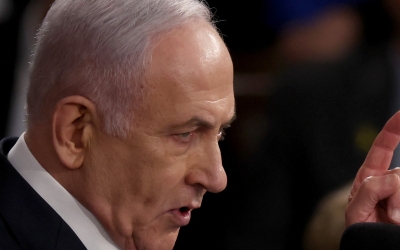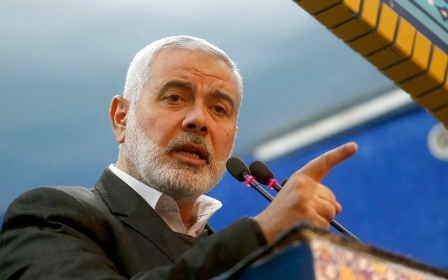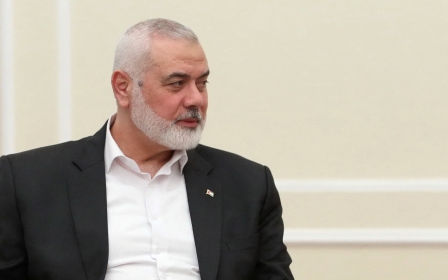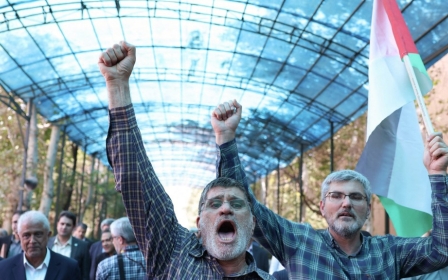Haniyeh killing: What will Hamas look like after the political leader's death?
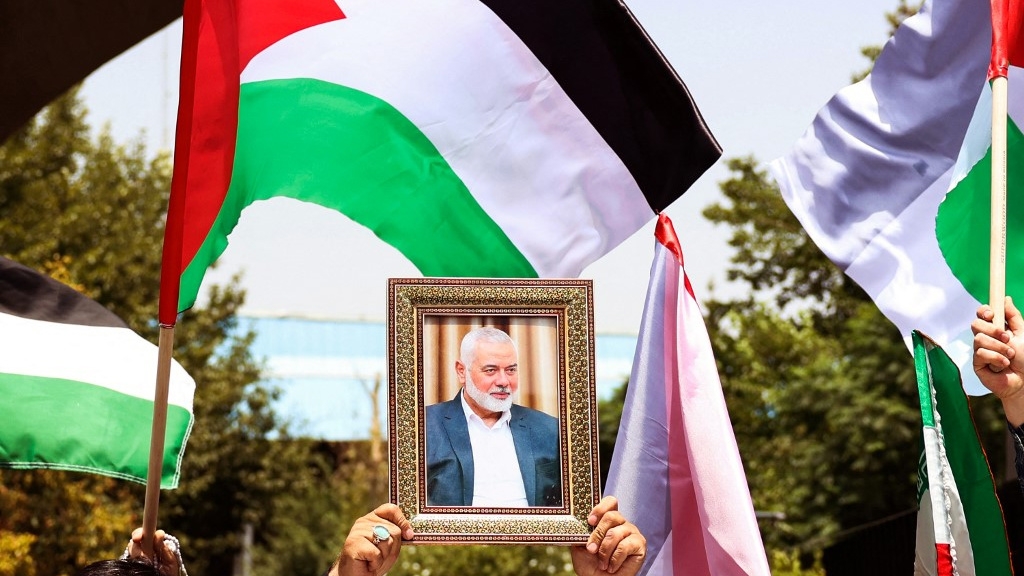
Symbolically, the death of Ismail Haniyeh is the heaviest loss that the Hamas leadership has faced since the assassination of its founder and spiritual leader, Ahmed Yassin, in 2004.
Although the damage is considerable, Hamas will not be destroyed by his absence. The group’s collective leadership is spread inside and outside of Palestine, with a structure designed to minimise the disappearance of any leader, however important they may be.
This pattern of assassination and renewal has been repeated over time. Eliminating individual leaders temporarily weakens the movement but consolidates its standing and popularity. Younger leaders step in, reorganisation takes place, and the group’s base of support widens.
A more important factor is the exacerbation of the causes behind the emergence of Hamas and other Palestinian resistance groups: the brutality of the ongoing Israeli occupation.
Israel fought against the Palestine Liberation Organisation (PLO) and Fatah, and after it largely neutralised both without ending its colonisation and occupation of Palestine, Hamas and Palestinian Islamic Jihad, which are proscribed as terrorist groups in the UK and other countries, came into being. The equation remains the same: military occupation breeds resistance.
New MEE newsletter: Jerusalem Dispatch
Sign up to get the latest insights and analysis on Israel-Palestine, alongside Turkey Unpacked and other MEE newsletters
When Haniyeh became the head of the elected Palestinian government in 2006, he refused to leave his modest home in the al-Shati refugee camp to move to an official residence, wanting instead to stay close to the pulse of the people, the refugees, the poor and the mainstream.
This is key to understanding his personality and political career since his early years as an activist at the Islamic University of Gaza in the 1980s.
Leader in the making
Being a political mainstreamer as early as the 1990s, Haniyeh decided to run for the Palestinian Legislative Council elections alongside a few other Hamas members, defying the movement’s official boycott, which stemmed from its opposition to the Oslo Accords.
But Haniyeh eventually pulled out to adhere to the official stance. In doing so, he published a statement that provided insight into the political thinking of a leader in the making: “Hamas would be in a position to introduce significant and badly needed reform in domestic institutions and could combat the spread of corruption… Participation in the elections would be a response to the demand of a significant number of our people who are looking for an honest alternative.”
Follow Middle East Eye's live coverage of the Israel-Palestine war
These ideas matured significantly in the platform of the Change and Reform list that Haniyeh led, which won the 2006 elections.
Haniyeh’s rise to power within Hamas and his popularity among the Palestinian people were very much linked to his centrist approach. He spoke the language of ordinary people and was a skilled orator and mobiliser.
Through its thuggish policy of assassinations across the region, Israel is pushing the Middle East towards unimaginable chaos
Polls both before and after 7 October have shown that he would have defeated Palestinian National Authority President Mahmoud Abbas if elections were held.
Always seen at the forefront of Hamas leadership, Haniyeh was respected even by many of the movement’s Palestinian rivals. He became an influential diplomatic figure for Hamas, prompting the group to elect him as its political bureau chief in 2017 and relocate him outside of the Gaza Strip.
Leaving Gaza and residing abroad, mainly in Qatar and Turkey, was a decision that Hamas thought would create more benefits than losses. While some criticised Haniyeh for leaving Gaza, he managed to build a broad network of relations with leaders of states and movements from across the region and beyond. Arab and Muslim leaders welcomed him from Morocco to Malaysia. During a recent visit to Oman, he received a warm reception from the sultan, the government and the people.
War of survival
What lies ahead for Hamas and the Palestinian people after Haniyeh?
For Hamas, this is a great loss, coming at a time when the movement is fighting what seems to be a war of survival in the Gaza Strip.
Hamas will need time to produce a charismatic leader of Haniyeh’s calibre. But eventually, it will do exactly that, just as it did after the killing of Yassin and other top leaders. On the slim chance that this assassination and the continuous killing in Gaza were to destroy Hamas as a structure, a regional nightmare would emerge. Instead of one intact military organisation, Israel would confront countless splinter groups more radical than Hamas.
For the Palestinian people, they have lost a man of unity. Haniyeh was a powerful force in efforts to foster internal reconciliation with Fatah and create a unified Palestinian leadership.
Unlike some other Hamas and Palestinian leaders, Haniyeh was guided by inclusive politics. His long journey with Hamas from its inception enriched his experience and skills in balancing out the best approaches. What could partly replace his influence is his legacy of being moderate toward his Palestinian rivals while remaining bold and uncompromising against Israel.
For Israel and its genocidal war on the Gaza Strip, all scenarios are now wide open in the wake of Haniyeh’s assassination and that of Hezbollah commander Fuad Shukr the previous day. Haniyeh was a key decision-maker in indirect negotiations to end the war on Gaza and arrange the release of Palestinian and Israeli prisoners. By killing him, Israel kills the negotiations - at least for now - and, with that, many moderate tendencies in Hamas and beyond.
The fact that he was assassinated in Tehran also opens Pandora’s box, with the region and the world anxiously anticipating Iran’s response. Through its thuggish policy of assassinations across the region, Israel is pushing the Middle East towards unimaginable chaos.
The views expressed in this article belong to the author and do not necessarily reflect the editorial policy of Middle East Eye.
Middle East Eye delivers independent and unrivalled coverage and analysis of the Middle East, North Africa and beyond. To learn more about republishing this content and the associated fees, please fill out this form. More about MEE can be found here.



